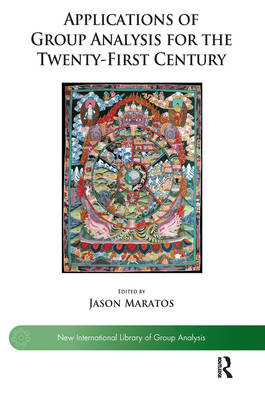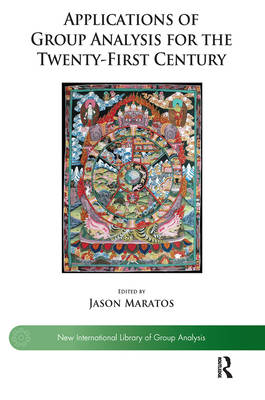
- Afhalen na 1 uur in een winkel met voorraad
- Gratis thuislevering in België vanaf € 30
- Ruim aanbod met 7 miljoen producten
- Afhalen na 1 uur in een winkel met voorraad
- Gratis thuislevering in België vanaf € 30
- Ruim aanbod met 7 miljoen producten
Zoeken
€ 168,95
+ 337 punten
Omschrijving
The Institute of Group Analysis (IGA) celebrates forty years from its foundation with the publication of these two volumes. The first volume aims to publicise the foundations of group analysis (with the earliest papers of Foulkes) as well as the most influential theoretical contributions by pillars of modern group analysis, such as Pines, Brown, and Hopper. The reader will be able to see the development of Group Analysis, form an opinion about the trajectory that it follows, and judge which way the tradition of openness and creative integration of diverse theoretical contributions will lead in the twenty-first century. The second volume focuses on the numerous fields of work that use group analytic principles. Workers in the field of forensic psychotherapy would now consider a great omission if they did not use some form of group analytic intervention, as would professionals dealing with those who manifest personality disorders or different age groups, such as adolescents. Group analysis has made significant contribution to organisational work, to feminism and anti-discrimination (including anti-racism) as well as in education.
Specificaties
Betrokkenen
- Auteur(s):
- Uitgeverij:
Inhoud
- Aantal bladzijden:
- 306
- Taal:
- Engels
- Reeks:
Eigenschappen
- Productcode (EAN):
- 9780367102623
- Verschijningsdatum:
- 21/06/2019
- Uitvoering:
- Hardcover
- Formaat:
- Genaaid
- Afmetingen:
- 159 mm x 235 mm
- Gewicht:
- 725 g

Alleen bij Standaard Boekhandel
+ 337 punten op je klantenkaart van Standaard Boekhandel
Beoordelingen
We publiceren alleen reviews die voldoen aan de voorwaarden voor reviews. Bekijk onze voorwaarden voor reviews.











